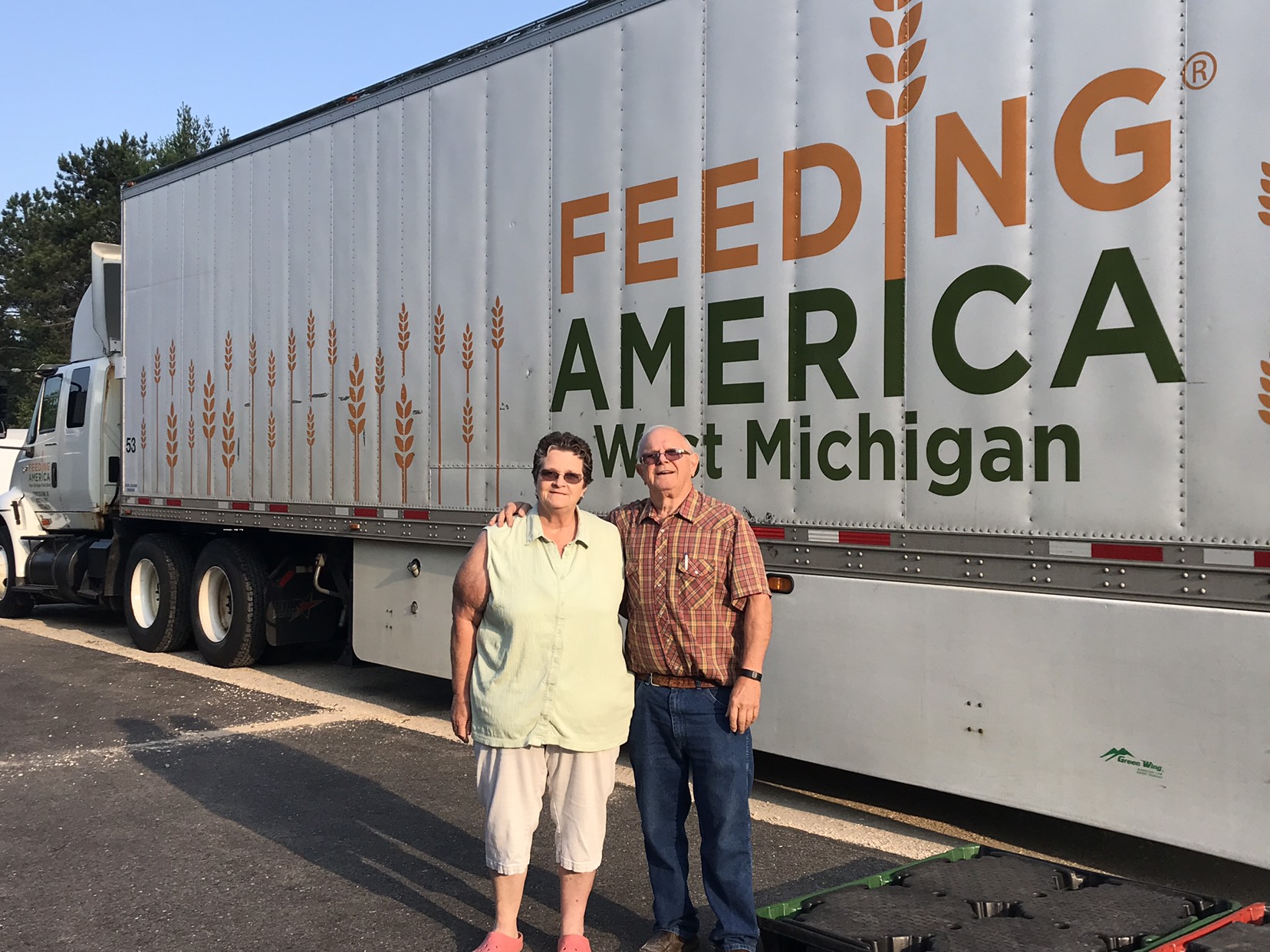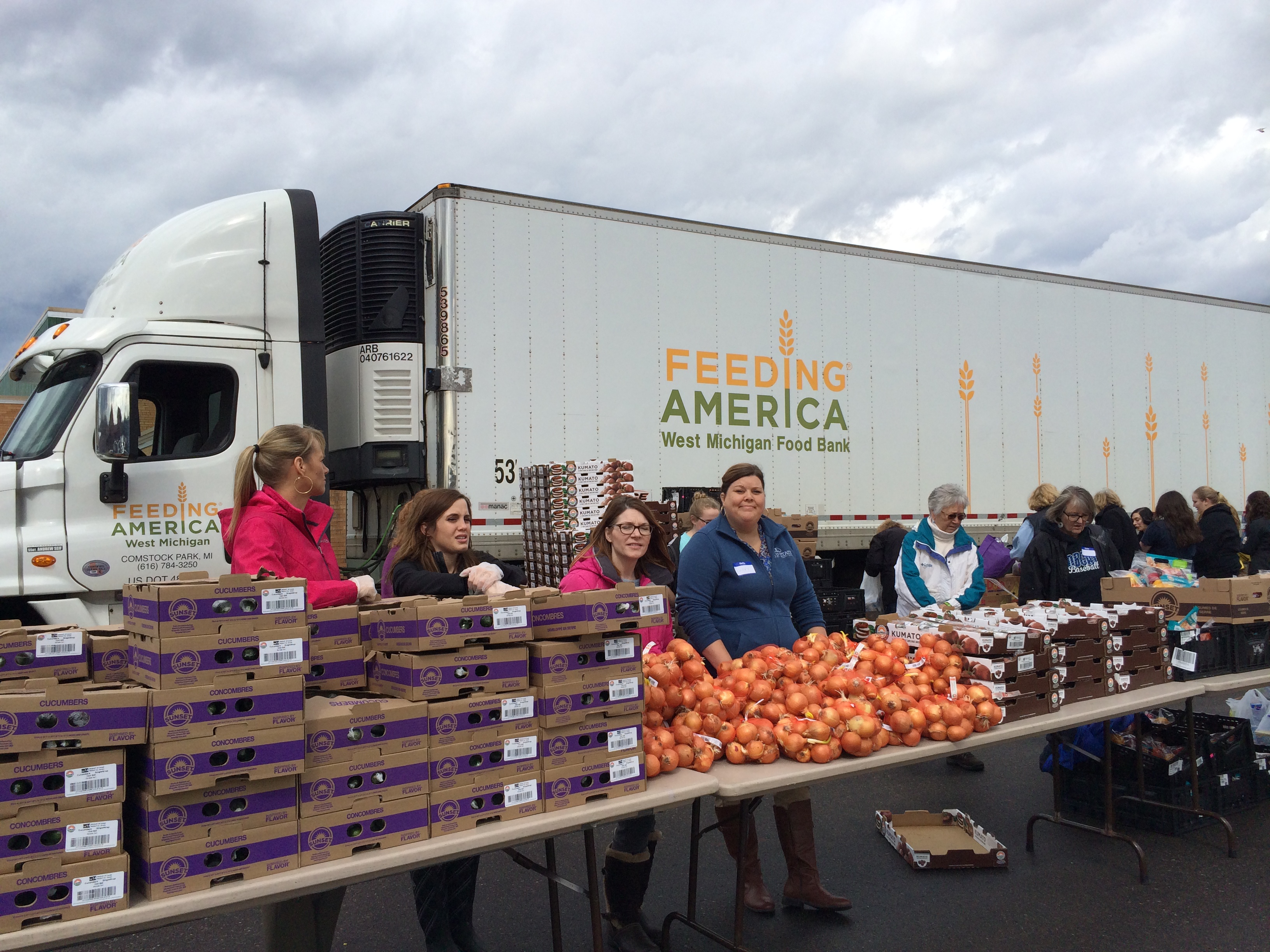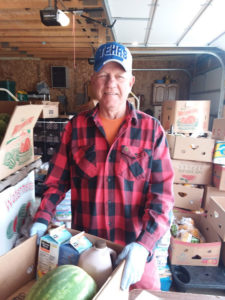Good Neighbor Services has worked hard to support Manistique residents struggling to meet their needs for the last 30 years. For nearly a decade, Margo and Loney have been instrumental to the nonprofit’s mission. Two years ago, they became the organization’s joint directors. The couple’s passion for Good Neighbor’s mission stems from their own experience: Early in their marriage, they faced food insecurity and didn’t know where to turn.
“We couldn’t make ends meet,” Margo said. There were many times when the couple could have benefitted from the support Good Neighbor Services provides, but instead they had to make difficult choices – including allocating less money towards food.
Today, Margo and Loney serve people who find themselves in similar situations. Many of the neighbors the nonprofit supports are seniors, and their need is extensive. Schoolcraft County residents face food insecurity at one of the highest rates in Feeding America West Michigan’s 40-county service area. 1 in 6 people are food insecure, and seniors are even more at risk.
Five years ago, the local paper mill went out of business, causing many to lose their jobs. Around that time, Margo and Loney heard about Feeding America West Michigan’s Mobile Food Pantry program and began bringing the food distributions to town. This year, many of the Mobile Pantries were sponsored by the Superior Health Foundation.

The need for food assistance is so great that some neighbors will do whatever it takes to receive food. Margo recalled an elderly woman who stood in line for hours to wait for a Mobile Food Pantry in the middle of winter – wearing a skirt and no stockings.
“We put her on the Feeding America [West Michigan] truck, we got her food and got transit to take her home,” Margo said.
To lessen this challenge, those who struggle to attend the monthly Mobile Food Pantry can pay a dollar or two for their box of food to be delivered to them through the local transit system.
Each of Good Neighbor’s Mobile Pantries provides 20,000 pounds – approximately 17,000 meals – to more than 450 families. Community members can also visit the organization’s fixed food pantry once a month to receive non-perishable staples. The fixed pantry is open six days a week.
Each month, between 50 and 75 people come to the fixed pantry, compared to the Mobile Pantries’ hundreds. According to Margo, the stigmatization of traditional fixed pantries may be the cause of the disparity between the two resources: Seniors often feel as if they’re “applying for a system” by coming to a fixed food pantry, whereas lining up to a get a box to take home feels “more approachable.”
“That’s part of the reason this [Mobile Food Pantry] is so important,” Margo said.
This mindset among the elderly is exemplified by the number in need who don’t sign up for the Supplemental Food Assistance Program (SNAP). According to the Food Research and Action Center, “in fiscal year 2013 — the most recent year with published data from the U.S. Department of Agriculture — more than 3.6 million older Americans participated in SNAP, but nearly 5.2 million other eligible seniors did not.”
Many seniors avoid signing up for SNAP, even though they are eligible, either because they are unaware that they qualify for the program, or because they view the program in a stigmatized way. No one should feel ashamed to sign up for food assistance, but Mobile Food Pantries like the one hosted by Good Neighbor Services provide a more accessible option for these seniors and for others who don’t qualify for SNAP but still face hunger due to the heightened cost of living
In addition to providing food, the nonprofit also provides assistance when neighbors struggle to afford utility bills or bus tickets. Along with support they receive from organizations like the Superior Health Foundation, Good Neighbor funds its programs in various creative ways. One of its biggest sources of funding is its thrift store that sells items donated from the community. Some other sources of funding include a can drive hosted by a local TV station and spare change donated during the holiday season by a Salvation Army bell ringer.
Many veterans, school kids and businesses come together to help out at each Mobile Food Pantry. Joe, a volunteer and veteran, has loved helping out and seeing the Mobile Pantry improve over the years.
“Spending time giving back to our community is something I have come to look forward to each month,” he said.
Feeding America West Michigan is grateful to partner with agencies like Good Neighbor Services, and to have the support of organizations like the Superior Health Foundation. Their combined efforts ensure that people facing tough times – like Margo and Loney once did – will have somewhere to turn for the help they need.
Story written by Juliana Ludema, Communication Assistant



